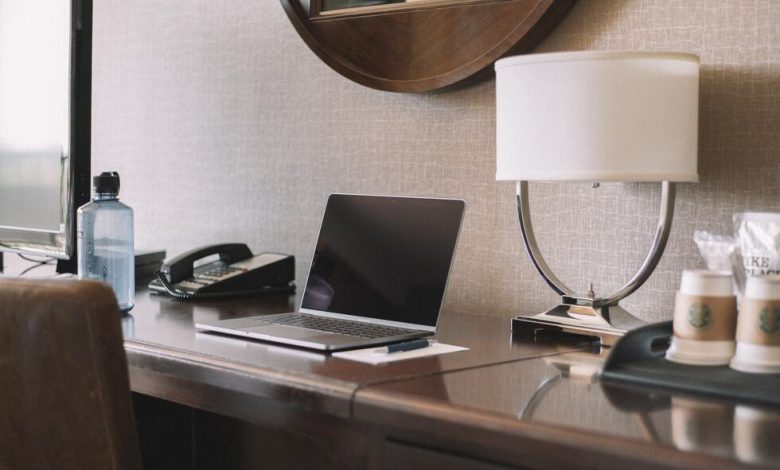
Where are all these guests who supposedly prefer humanless hotel experiences?
Guests might not favour humanless hotels after all.
For probably a decade now, I have almost daily been reading articles and blog posts about how today’s hotel guests prefer to interact with technology rather than humans.
Of course, it is not by coincidence that most of these are authored by executives who are peddling the latest “essential” guest technology.
Often, these articles and blogs are accompanied by survey results to supposedly support the theme. Yet when I look for details on sample size and methodology, I usually find there is no mention of these, or I find that the survey was conducted “online” with a very small self-selected sample size.
At first, those who peddled this tech pushed what I call the millennial myth, which is that everyone born between a certain range of years is a homogenous group that dislikes human interaction because they grew up with computers and smartphones. Now, of course, it could be called the “gen Z myth,” since the first millennials have reached their early forties as gen-Zers enter their mid-twenties.
Years ago, when I first read the book Generations, from which such theories originally evolved, and learned about Strauss-Howe generational theory, I have to say I did find it interesting, as I consider myself still to be a student of sociology.
However, to lump an entire population into a classification, and what’s more, to assume that group’s preferences will stay static as they age, is shortsighted. Instead, I have always believed that any given guest’s preference to use, or not use, tech is based more on their situation or circumstances. As a case in point, if I am travelling alone for a one-night business trip to call on clients, I am probably going to book a room on an OTA or brand app based on location, price and ratings.
However, if I’m more emotionally invested in the trip, such as if it is for a special occasion, a vacation or if travelling with a pet, an elderly parent or my baby grandnieces, I am much more likely to call with questions. If I am ordering a continental breakfast for an early wake-up, I might use an app or TV system, but if I want a really nice meal to start my day, I prefer to call in my breakfast preferences.
More recently, at the start of the COVID-19 pandemic, it seemed to me that the peddlers of tech were salivating like hungry pets waiting for bowls when it was first thought that COVID spread through droplets landing on surfaces. Guests, we were told, would now prefer to text from their own smartphone instead of picking up the in-room guest phone, and they would prefer to check-in on an app, even though most systems still require stopping by the front desk to get a key card.
Now that science has determined that the Coronavirus is mostly spread via airborne transmission vs contaminated surfaces, it seems that the tech companies want us to believe that guests have now been converted to preferring contactless service, which I think should be more appropriately called “humanless service.”
Who are and where are these guests? Now, I’m certain that this article will result in my inbox receiving a flood of emails and messages from people who truly do prefer tech over touch, and I acknowledge that you are out there. I’m betting that the age demographics of those who will message me is going to include a wide range, as I am sure some gen-Xers and boomers prefer tech over touch.
Yet based on experiences in travelling extensively since May 2020 to literally this very day as I write aboard a flight to speak at a lodging conference, the people I talk to on planes on rental car buses, at breakfast buffets, as well as my extensive network of friends, my gen-Z kids and their friends, and my eight millennial nieces and nephews, people still enjoy human interactions, especially when they have a need that is time-sensitive or personalised. In fact, if anything, I sense in the winds of change that a tech backlash is blowing, especially from the younger age groups.
Also, having checked in to an average of six hotels each month this past year, I have yet to see a single guest who has used a pre-check-in app approach the desk. Contrarily, I still see a lot of people of all ages and travel attire patiently waiting in lines with me for a personalised welcome and key.
I am sure, also, that I will get emails from those at brands and tech providers telling me how many guests are actually using services such as self-check-in and app messaging. However, utilisation does not necessarily indicate preference. For example, when my local CVS or Target store has failed to schedule enough staff to work the cashier lines, I do use self-checkout. However, the end result too often is that I have some type of error code with a scan or coupon, causing the station light to flash, and I still have to wait for assistance to clear it. If the lines are not long, I always prefer a human cashier over a machine.
Admittedly, my evidence is anecdotal. I also want to make it clear that I am not anti-tech. On the contrary, I do think that hotels should embrace emerging tech that can help improve guest service efficiency. But let us not as an industry become so obsessed with tech that we forget that it is always the people that create guest experience ultimately resulting in loyalty and social media buzz.
In this era where hotel brands constantly copy one another’s latest amenity, lobby design or F&B presentation, if we force guests to use tech out of a thinly disguised objective to cut labor costs, then hotel rooms will become a commodity with the only remaining differentiator being price.
As previously published in 4hoteliers.com
Author: Doug Kennedy is president of the Kennedy Training Network, Inc., a leading provider of hotel sales, guest service, reservations and front desk training programs and telephone mystery shopping services for the lodging and hospitality industry. His articles have been published worldwide, and he is the author of So You REALLY Like Working With People? – Five Principles for Hospitality Excellence.
Doug Kennedy is president of the Kennedy Training Network. Doug’s articles are originally published in www.HotelNewsNow.com” and AccomNews shares them with permission.
Doug is a leading provider of hotel sales, guest service, reservations, and front desk training programs and telephone mystery shopping services for the lodging and hospitality industry. He continues to be a fixture on the industry’s conference circuit for hotel companies, brands and associations. Since 1996, Doug’s monthly training articles have been published worldwide, making him one of the most widely read hospitality industry authorities.








Humanless hotel experiences, Doug Kennedies article
This article is very much to the point. This kind of set up may be ok in a business district where guests stay mainly overnight, arrive late, leave early.
We operate a small family B&B in SE Queensland country. Most of the guest comments highlight the friendliness and helpfullness of the owners and we make sure that we communicate with them on arrival – is everything they expect there? – and on departure – how was your stay?
The only experience I had with humanless motel was very negative despite the fact that we did not arrive very late, around 7 pm. The code received to access the key did not work, it was not clear which unit was reserved for us, it was difficult to reach someone and a fair amount until someone turned up.
The hospitality industry should remember that hospitality means HUMAN CONTACTS.
Some tech fads survive, some don’t. Personal Customer Service has survived a few thousand years and has a bright future. Contactless check-in suits no frills vending machine accommodation while entry through personalised customer service at a reception desk provides a number of advantages. Undesireables are declined entry for a start. On a more positive note, relationships are established and reinforced, information is exchanged on current conditions and events, upgrades are gifted, upselling is done, guest preferences are satisfied, guests are made to feel welcome, important and individual, forward bookings are secured, loyalty programs are launched, food orders are secured for in-house sales.
Many guests spend long hours travelling long distances solo and appreciate a warm welcome and friendly customer service throughout their stay via human contact.
Notably 20% of the well known Medallia accommodation rating system is about the guest’s experience of the personal check-in check-out system – no questions of vending machine check-in experiences like ” did you enjoy your clicks ? “.
Superior sincere personal customer service can’t be beaten.
Personalised service is definitely welcomed by most guests. It’s important to find the balance of guests who prefer the personalized service or who don’t want to interact. Following Covid-19 there was the big push for everything to be contactless, however this is not everyone’s choice. A large number of AirBnB properties operate without any contact with the host except via the portal or text messages and they have been successful.
Technology is advancing and as with all AI it is making a lot of things less labour intensive. It’s important to maintain a level of technology within the property along with providing a high level of customer service.
Another way to look at it is that by taking away the customer service aspect how will young people learn how to deal with difficult situations and interact with people. A large number of employees in the accommodation and hospitality sector are young students and the learning experience in the industry is not simply how to pour a beer, how to make a bed or how to carry the plates. It’s also about dealing with challenging situations, thinking outside the box and also dealing with pressure situations. These things cannot be learnt by an application on your phone or a computer, they are learnt from experience in the work force and customer service is a prime example of this.
Working with technology is great and everyone needs to move with it at their own pace. Customer service should still have human interaction as a major part of the equation.
Emily Stephen’s comment is right to the point….. it is not all about saving time and money, working – not only in the hospitality industry – is about interacting with people, not only technology. This has to be learnt. If more weight was put on that aspect, maybe, just maybe there would be less problems with mental health and depression. These afflictions cost enormous amounts of money and are not easily healed.